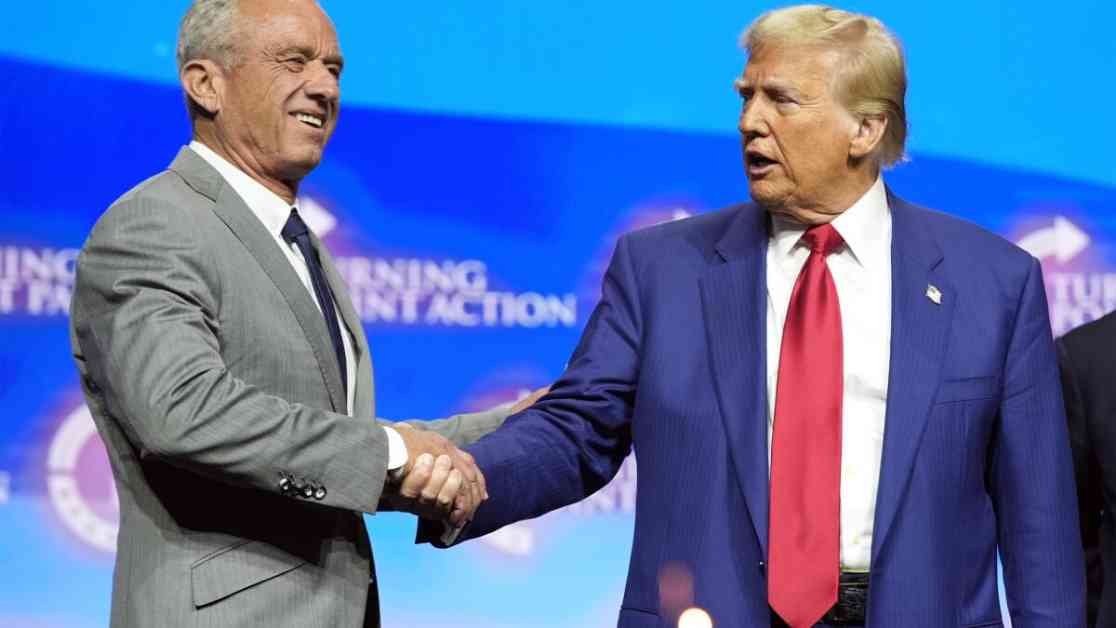President-elect Donald Trump has been known for demanding loyalty from lawmakers in Congress, and now the Senate faces a new test with his controversial Cabinet picks. Trump’s recent nominations have raised concerns among senators from both parties, with some expressing doubts about the qualifications of his selections.
Some of Trump’s nominations include Pete Hegseth as Secretary of Defense, Tulsi Gabbard as Director of National Intelligence, Matt Gaetz as Attorney General, and Robert F. Kennedy Jr. as head of the Department of Health and Human Services. These choices have sparked criticism and skepticism, with many questioning the rationale behind these appointments.
Former House Speaker Kevin McCarthy predicts that at least the nomination of Matt Gaetz will fail, as he faces scrutiny for his involvement in a congressional investigation into sex trafficking. Despite the controversy surrounding these picks, Trump seems determined to push them through, even suggesting the use of recess appointments to bypass the confirmation process.
The Senate, now under the leadership of Senator John Thune, will play a crucial role in reviewing and confirming Trump’s nominees. Thune has expressed a preference for following the traditional confirmation process but has not ruled out the possibility of recess appointments. Lawmakers from both parties are calling for a thorough review of the nominees, especially in light of the recent ethical concerns surrounding some of them.
However, the pressure to approve Trump’s picks is mounting, with Senator Tommy Tuberville warning dissenters that they risk being ousted from the Senate if they stand in the way of the president’s agenda. This dynamic raises questions about the Senate’s independence and its role as a check on the executive branch.
As the Senate grapples with these contentious nominations, observers are closely watching how lawmakers will handle the situation. The decisions made in the coming days will not only impact the confirmation process but also set the tone for future interactions between the legislative and executive branches of government.
The use of recess appointments to avoid Senate scrutiny has raised concerns among experts and former government officials, who view it as a potential threat to the democratic process. Richard Painter, a former White House ethics lawyer, warned that bypassing the Senate in this manner could set a dangerous precedent reminiscent of authoritarian regimes.
The Senate’s response to Trump’s nominations will be a test of its independence, integrity, and willingness to uphold its constitutional duty. The outcome of this process will have far-reaching implications for the balance of power between the branches of government and the future of governance in the United States.



























